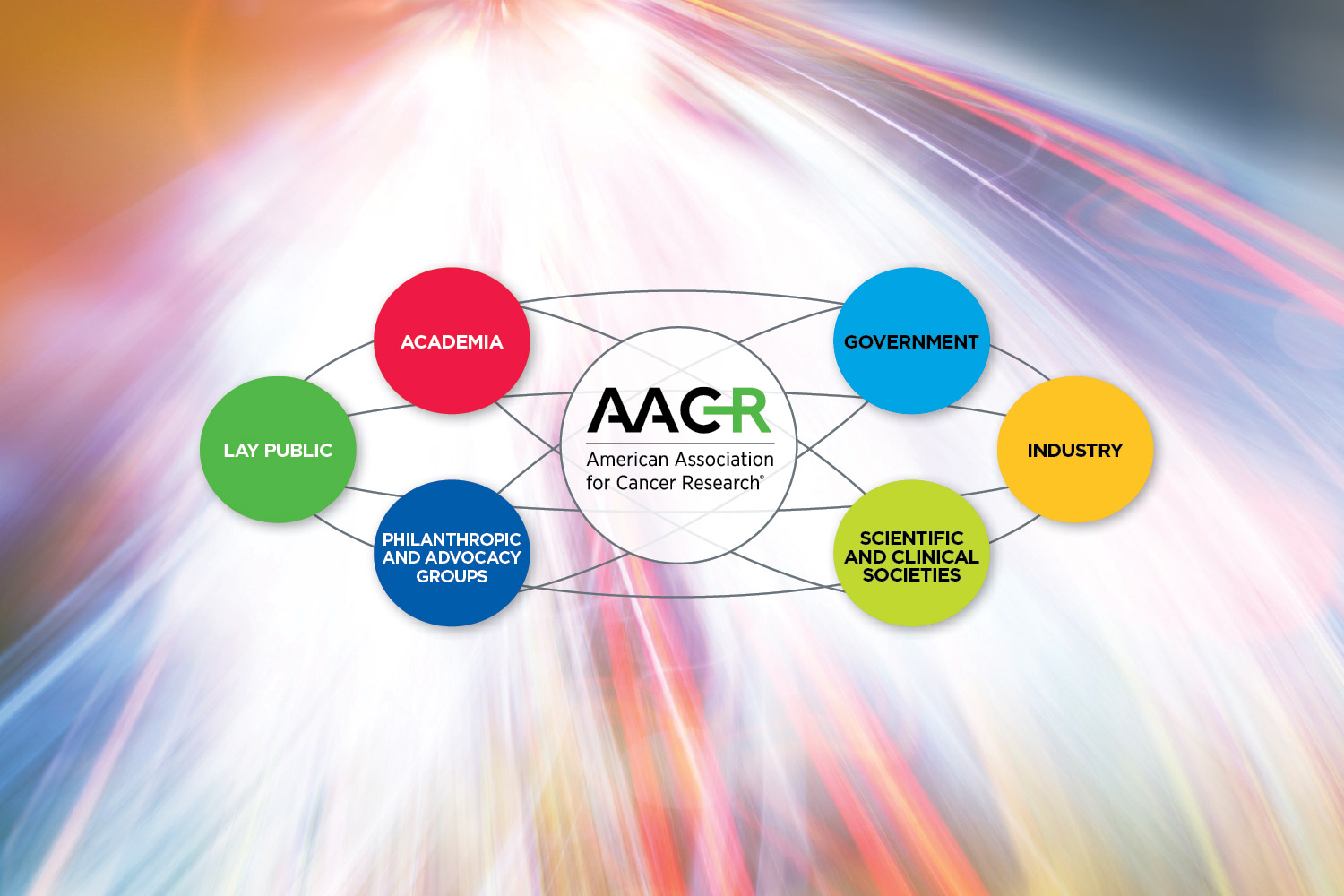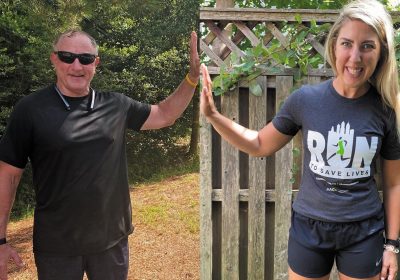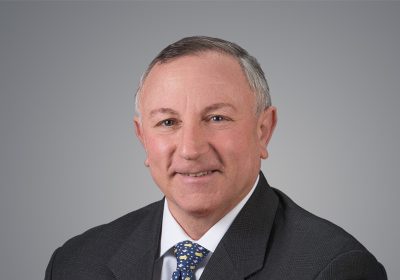
The AACR: A Catalyst for Cancer Research
When people think about cancer research, they may envision scientists in white coats peering through microscopes. That’s part of the work, but getting cancer research innovations to patients requires more than what happens in a lab.
The American Association for Cancer Research (AACR) is the world’s first and largest professional organization dedicated to advancing cancer research and its mission to prevent and cure all cancers. It makes sense that its members would reflect the diversity of skills and settings needed to bring cancer discoveries from the laboratory bench to the patient’s bedside. AACR members include university-based research scientists, oncologists and other specialists, leaders of pharmaceutical and biotechnology companies, representatives from government agencies, and cancer patients and research advocates.
When William N. Hait, MD, PhD, first joined the AACR in the mid-1980s, he was a medical oncologist at the Yale University School of Medicine in New Haven, Connecticut. In 2007, the year he left the academic world to join pharmaceutical giant Johnson & Johnson, where he is now the global head of Johnson & Johnson External Innovation, Dr. Hait began a one-year term as the AACR’s president. These varied roles have allowed him to see firsthand how the AACR serves as a catalyst for collaboration.
“By supporting research in every dimension, through meetings, publications, grant funding, advocacy, you name it, the AACR has been the fulcrum that has allowed people to get into cancer research and apply their research for the benefit of patients,” said Dr. Hait. “Most of the discoveries that lead to a new drug or a new diagnostic begin in an academic center, [and] industry is heavily reliant on those interactions. What the AACR has been able to do over many, many years has been to be the master convener of the different stakeholders in this process of developing medical solutions for cancer patients.”
Elizabeth M. Jaffee, MD, the AACR’s President for 2018-2019, is the deputy director of Johns Hopkins Kimmel Cancer Center in Baltimore. Although she works in academic and hospital settings, she sees the AACR’s importance in encouraging interactions among the varied cancer communities.
“The AACR is the largest cancer research organization in the world and represents all members of the cancer community who work in all sectors,” Dr. Jaffee said. “[The pharmaceutical] industry works with the AACR to support new research through grants; to develop the next generation of cancer researchers through career development activities, conferences, workshops, and think tanks on all areas of cancer research; and to help the AACR facilitate all other needs of the cancer research community.”
Richard Pazdur, MD, the director of the Oncology Center of Excellence at the Food and Drug Administration (FDA), can rely on the AACR to help build understanding within the cancer community about drug approval processes.
“Over the years, we’ve worked very closely with the AACR, not only in communicating regulatory issues and regulatory initiatives, but also in working on programs with the AACR,” said Dr. Pazdur. In turn, the AACR has helped the FDA educate its staff on upcoming innovations in oncology. “The AACR has provided an avenue for our staff to understand what the new advances are and how we can use them in regulating oncology drugs,” Dr. Pazdur said.
At the end of the process of bench to bedside are patients who benefit from cancer treatment innovations. They too are actively involved in the AACR through the Survivor and Patient Advocacy Program and its signature effort, the Scientist⟷Survivor Program (SSP), which brings together researchers and patients to learn from each other.
Peggy Devine, a breast cancer survivor and advocate, has participated in the SSP as an advocate and a mentor. Devine, of Auburn, California, is the founder, president, and executive director of the Cancer Information and Support Network, which offers help to people affected with cancer through its website (cisncancer.org), webinars, and training sessions.
For Devine, the AACR offers the best combination of training, mentoring, and access to recent research findings—and to the researchers themselves.
“The AACR is directly responsible for providing scientific training to hundreds of cancer patient advocates,” said Devine, “who can then work with academia, government, their local communities, and industry to bring the patient perspective to the table, thereby ensuring a patient focus as research moves forward.”





